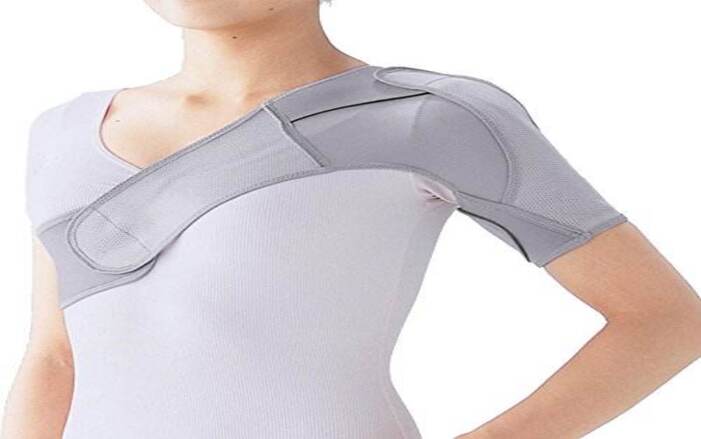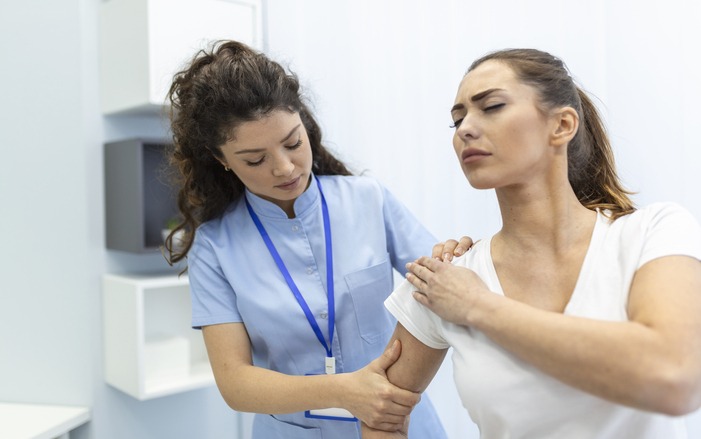A shoulder dislocation occurs when your upper arm pops out of your shoulder socket. This involves separation of the ball and socket components of the shoulder. In some cases, the surrounding tissues supporting the shoulder joint such as muscles, tendons and ligaments are overstretched or torn.


The shoulder joint is the most mobile joint in the body with a ball-in-socket mechanism. This high degree of movement means the shoulder is intrinsically less stable compared to other joints.
A shoulder dislocation can occur as a result of a fall or direct impact to the shoulder. This can happen during sports activities, particularly contact sports.
It is more common in the younger age group, especially people in their teens and twenties.
The features of a dislocated shoulder are severe pain and/or weakness, swelling, squaring of the shoulder, muscle spasms, difficulty moving the shoulder, and numbness / tingling of the arm, hand or fingers
Keep your arm still, close to the body. Refrain from trying to pop your arm back in yourself as this can result in damage to the adjacent tissues, nerves and blood vessels around the shoulder joint.
Go to an emergency department or see a shoulder specialist for a proper dislocated shoulder treatment immediately.
Reduction of shoulder joint
X-rays will be taken initially to confirm the diagnosis. Immediate priority is to place the arm bone back into the shoulder socket. This will usually be done under light sedation and analgesia.
Repeat X-rays will be done to check that your shoulder is in the correct position once your shoulder joint is back in place.
Once the shoulder has been reduced, you may have to wear a sling for a week to rest the shoulder
It is important to see a shoulder specialist after a shoulder dislocation. MRI scans may be needed to look for ligament or tendon tears as well as to evaluate for any bone damage.
Repairing tears in the shoulder tissues
Ligaments, tendons and other tissues can be damaged following a shoulder dislocation.
In some instances, surgery may be needed to repair them. This helps to reduce the chance of dislocating the same shoulder again.
Surgery is done through keyhole incisions, where small cuts and a thin tube with a light and camera at one end are used. Such repairs are usually performed by a shoulder specialist in Singapore.
If you are seeking dislocated shoulder treatment, do not hesitate to consult Dr Dennis Ng now to relieve your shoulder conditions effectively.
AT THE ORTHOPAEDIC CENTRE
WE ARE COMMITTED TO PROVIDE PERSONALIZED, COMPREHENSIVE CARE FOR YOU
Same Day Appointment
Attentive and Conscientious Team
Minimally Invasive Keyhole Techniques
MOH-Compliant Transparent Pricing
We are open for emergency appointments to treat you as soon as possible. Get in touch with us today through 6690 4932 for a personalized assessment, or complete the form below.
